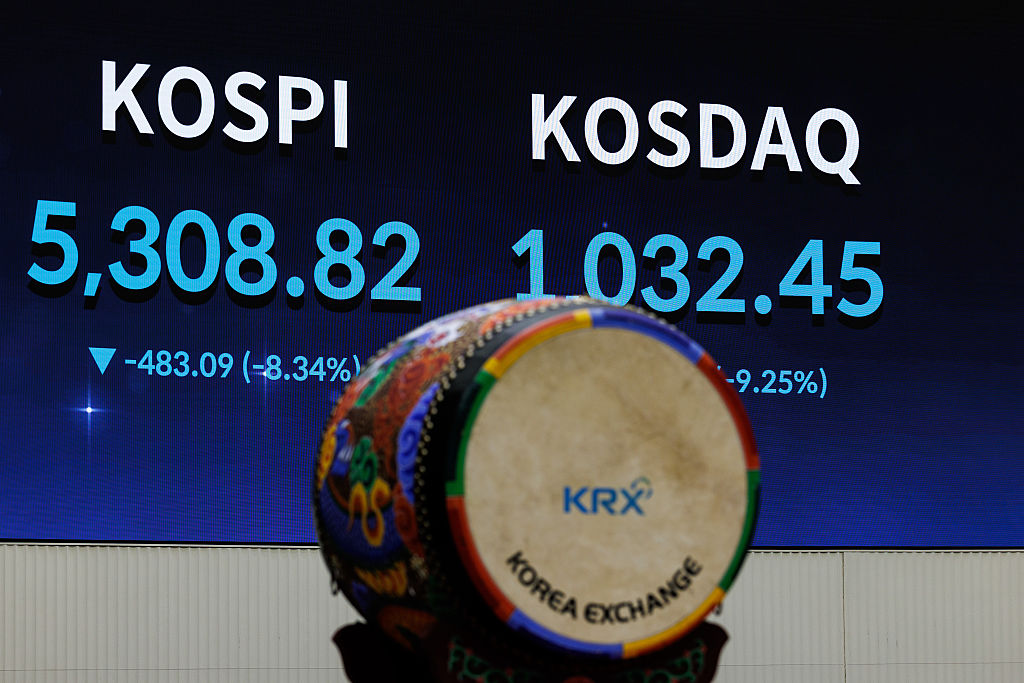Investors should give European stockmarkets a second look
Investors tend to think that European stockmarkets are full of stale “old economy” firms while the US is full of fast-growing tech stocks. But European markets now offer their own healthy mix of quality growth stocks.

Get the latest financial news, insights and expert analysis from our award-winning MoneyWeek team, to help you understand what really matters when it comes to your finances.
You are now subscribed
Your newsletter sign-up was successful
Want to add more newsletters?
A surge in coronavirus cases in Europe means that talk of a swift recovery is now a “summer memory”, says Peter Goodman in The New York Times. French prime minister Jean Castex this week acknowledged that “the second wave is here”, as governments across the continent tightened restrictions. Spain has declared a state of emergency in Madrid and instituted a partial lockdown there.
Economic gloom is spreading. France now expects activity to remain stuck at 95% of pre-pandemic levels for the rest of the year. Spanish business sentiment hit a four-month low last month. The pan-European Europe Stoxx 600 index is down 11% so far this year.
The changing of the guard
The common investment “trope” is that Europe is full of “old economy” firms while the US races ahead with technology, says Graham Secker in the Financial Times. Yet that idea is “outdated”. Banks and energy no longer dominate the MSCI Europe index. Indeed, the weighting of banks on European indices is now the same as the global average. The areas where European markets are “overweight” the global average today – healthcare, consumer staples and industrials – offer a “healthy mix of good, quality growth”. The European “leopard is indeed changing its spots”.
Try 6 free issues of MoneyWeek today
Get unparalleled financial insight, analysis and expert opinion you can profit from.

Sign up to Money Morning
Don't miss the latest investment and personal finances news, market analysis, plus money-saving tips with our free twice-daily newsletter
Don't miss the latest investment and personal finances news, market analysis, plus money-saving tips with our free twice-daily newsletter
If the US market is increasingly a wager on tech, then Europe is “a bet on drugs”, says Stephen Wilmot in The Wall Street Journal. Five of its ten biggest firms are now drugs firms. Back in 2004 the top three Stoxx Europe 50 firms were all British: BP, HSBC and Vodafone. Today’s leading trio are Swiss: two pharmaceutical giants (Roche and Novartis) and Nestlé. Europe offers other “growth niches” as well, from French luxury goods to Danish cleantech (energy efficiency), says Reshma Kapadia in Barron’s. America’s S&P 500 has “eviscerated” other markets over the past decade, “returning 13.9% a year, on average” against 5.5% for the World ex-US.
Yet stretched valuations are giving Americans the “urge to do some portfolio globe-trotting”. If we strip out expectations about growth and just look at current valuations, then US equities are “priced to deliver” just 0.5% in annual real returns over the next decade, says Robert Arnott, the founder of Research Affiliates. Europe and Japan are offering real returns of “about 5%”.
A German anchor
Germany’s Dax has outperformed other European markets this year, falling by just 2.2%, thanks to the country’s export-led exposure to the strong Chinese recovery, says Anna Isaac in The Wall Street Journal. Analysts think German carmakers will also get a boost as the pandemic makes more people avoid public transport. In 2018 the debt of German non-financial companies was about 58% of GDP, compared with 84% in the UK and 141% in France. As Christoph Ohme of DWS Group puts it, strong public and corporate finances make Germany resilient in a crisis. It is a “stable anchor” for the world economy.
Get the latest financial news, insights and expert analysis from our award-winning MoneyWeek team, to help you understand what really matters when it comes to your finances.
Alex is an investment writer who has been contributing to MoneyWeek since 2015. He has been the magazine’s markets editor since 2019.
Alex has a passion for demystifying the often arcane world of finance for a general readership. While financial media tends to focus compulsively on the latest trend, the best opportunities can lie forgotten elsewhere.
He is especially interested in European equities – where his fluent French helps him to cover the continent’s largest bourse – and emerging markets, where his experience living in Beijing, and conversational Chinese, prove useful.
Hailing from Leeds, he studied Philosophy, Politics and Economics at the University of Oxford. He also holds a Master of Public Health from the University of Manchester.
-
 One million more pensioners set to pay income tax in 2031 – how to lower your bill
One million more pensioners set to pay income tax in 2031 – how to lower your billHundreds of thousands of pensioners will be dragged into paying income tax due to an ongoing freeze to tax bands, forecasts suggest
-
 Stock market circuit breaker: Why did Korean shares pause trading?
Stock market circuit breaker: Why did Korean shares pause trading?The fallout from the conflict in the Middle East hit the Korean stock market on 4 March, with shares forced to temporarily stop trading. What is a stock market circuit breaker, and why did the KOSPI trigger one?
-
 Three Indian stocks poised to profit
Three Indian stocks poised to profitIndian stocks are making waves. Here, professional investor Gaurav Narain of the India Capital Growth Fund highlights three of his favourites
-
 UK small-cap stocks ‘are ready to run’
UK small-cap stocks ‘are ready to run’Opinion UK small-cap stocks could be set for a multi-year bull market, with recent strong performance outstripping the large-cap indices
-
 Hints of a private credit crisis rattle investors
Hints of a private credit crisis rattle investorsThere are similarities to 2007 in private credit. Investors shouldn’t panic, but they should be alert to the possibility of a crash.
-
 Investing in Taiwan: profit from the rise of Asia’s Silicon Valley
Investing in Taiwan: profit from the rise of Asia’s Silicon ValleyTaiwan has become a technology manufacturing powerhouse. Smart investors should buy in now, says Matthew Partridge
-
 ‘Why you should mix bitcoin and gold’
‘Why you should mix bitcoin and gold’Opinion Bitcoin and gold are both monetary assets and tend to move in opposite directions. Here's why you should hold both
-
 Invest in the beauty industry as it takes on a new look
Invest in the beauty industry as it takes on a new lookThe beauty industry is proving resilient in troubled times, helped by its ability to shape new trends, says Maryam Cockar
-
 Should you invest in energy provider SSE?
Should you invest in energy provider SSE?Energy provider SSE is going for growth and looks reasonably valued. Should you invest?
-
 Has the market misjudged Relx?
Has the market misjudged Relx?Relx shares fell on fears that AI was about to eat its lunch, but the firm remains well placed to thrive